A woman walks with a young child on her back, holding two large fruit boxes with both hands. Her steps waver a bit, due to the weight she carries.
Individuals employ different methods to transport heavy goods – some opt for the traditional long shoulder pole, while others balance oversized loads on their bikes. They patiently wait at the entrance gate.
This is the border pass gate known as Sin Phyu (white elephant) near the Muse town border with Myanmar. Here, porters labor to transport goods from China to the Myanmar side.
“We receive one Chinese Yuan for each kilogram of goods we carry. So, if we transport 20 kilograms, we earn 20 Yuan,” explained Nang Hmo (not real name), a mother with a young child who works as a porter.
One Chinese Yuan is equivalent to 400 Myanmar Kyats, and the people at the border commonly use Chinese currency.
Porters earn one Yuan for each kilogram of goods they transport, such as fruit and egg boxes, with the payment determined by the weight measured.
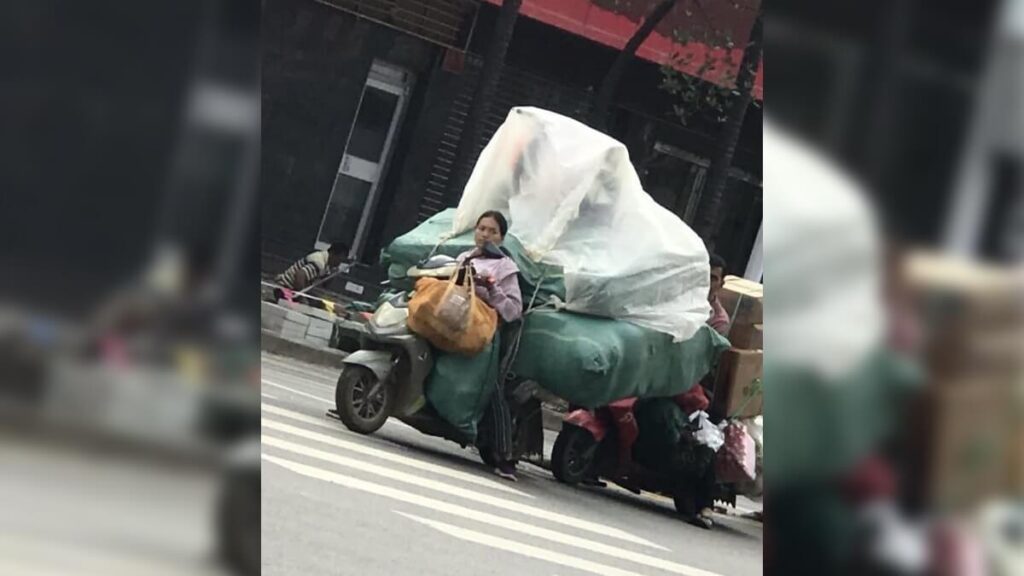
The Chinese authorities reopened the border pass on September 4, signaling the conclusion of a three-year closure prompted by the COVID-19 pandemic. The area is now bustling with people eagerly anticipating the opportunity to cross the border for work on the other side, while others are awaiting the chance to engage in portering or laboring with goods coming from China.
Since the last week of April, officials on both sides have banned the use of cars for goods transportation, citing differences between the items and the 3% product-based tax. To ensure precise measurements, they have restricted transportation to handcarry and motorcycles and banned the usage of cars.
However, the State Administration Council (SAC) has announced plans to combat illegal trading along the border, as it has resulted in a loss of national revenue and negatively impacted the economy. It is stated that their efforts are aimed at ensuring compliance with the law in border trading activities.
Due to such restrictions, residents in the Muse border trade town encountered challenges in transporting goods, relying on manual labor and motorcycles. Those engaged in these labor-intensive activities also faced additional difficulties.
“Every day, those involved in porter labor have to wake up early, usually around 2:00 a.m. to 3:00 a.m., and join the queue to offer their services. Members of the people militia groups and the police often reserve spots in the queue and sell tokens back to the people,” explained Nang Hmo.
Porters are required to wait in line to cross the border and carry goods from the other side. However, they have also faced exploitation as members of the militia and police sell tokens. The porters are advocating for fair treatment in this regard.
“No matter how early people wake up and join the line, they always end up having to buy a token. Because of this we even had an issue with the police. They should prioritize those who arrive early in the line; it’s not fair. Now, it doesn’t matter how early you arrive; without purchasing a token, you won’t secure a place.” complained Nang Hmo.
Members of the people militia group reserve parking spaces for around 20-30 motorbikes and sell them back to people early in the morning. Throughout the day, the police reportedly follow a similar practice, reserving parking spaces for about 300 motorbikes and selling them to individuals, as claimed by the porter workers.
The token-selling practice involves militia groups selling one spot for each motorbike or person for 15,000 MMK, whereas the police sell each token for 10,000 MMK.
Additionally, some civilians resort to sleeping overnight to reserve spaces and later sell these spots to those in need for 15,000 MM.
Individuals queuing up to enter China and offer porter services are required to purchase these tokens or spaces.
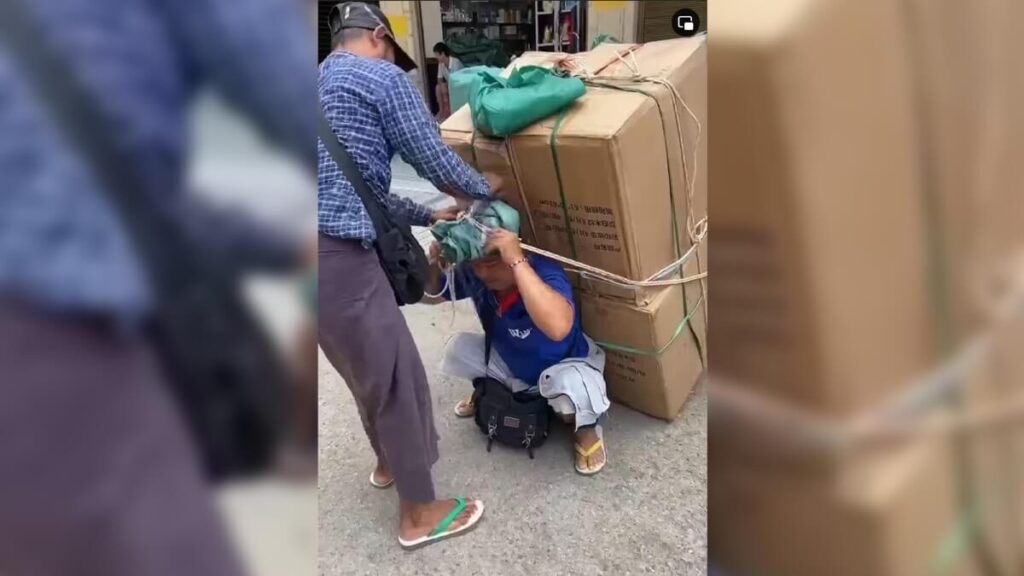
Each day, thousands of people cross the Sin Phy Shin border pass. Some porter workers even buy a large number of tokens for a month from members of militia groups.
“It’s not profitable if you can only carry 100 kg of goods a day. We have to pay 15,000 MMK every time we cross the border, and we still need to buy food. Moreover, we have to pay the police here and there a few thousand MMK on each labor trip. Out of our daily earnings, we end up spending or paying others around 40,000 MMK,” explained Nang Hmo.
Porters who use motorbikes to transport goods face a significant disadvantage in terms of profitability. They not only have to purchase queue spaces from the police but also need to cover expenses for border-pass documents, food, and taxes out of their daily labor wages. Consequently, they find it challenging to make a substantial profit from their daily labor.
Before, use of loading carts are allowed, but that’s no longer the case. As a result, people are encountering difficulties in transporting goods, shared Nang Thi.
“Now, they prohibit the use of loading carts, and individuals are compelled to rely on shoulder transporting sticks, backpacks, and their hands to carry goods. It’s a tiring job,” added Nang Thi.
Since the first week of October, the State Administration Council (SAC) has prohibited the use of loading carts to carry goods at the Sin Phy Shin border pass gate. Now, people must rely more on manual labor, as explained by Nang Thi.
“It is not easy to load and carry the goods. Waiting in line to load with a motorbike is already very time-consuming. With many people in the line, each person can only labor the goods once a day,” added Nang Thi.
Muse town, situated at the China border, was once stable and enjoyed a flourishing economy. However, after the onset of the COVID-19 pandemic and the military coup, the economy in the border region has experienced a significant downturn. Concurrently, clashes between the State Administration Council (SAC) and ethnic armed groups are also occurring along the border.
As a detrimental consequence of the military coup, Myanmar has witnessed the devaluation of its currency and an increase in inflation. Additionally, the aftermath has seen a surge in online fraudulent activities, scams and gambling. Drug-related issues have also escalated, contributing to a rise in overall crime rates. Furthermore, there has been an increase in the number of individuals leaving the country in search of job opportunities abroad.
“Myanmar is regressing to the past; it feels like we can’t really move forward,” expressed Maung Htet, a local resident from Muse town.
The economy has been on the decline since the onset of political instability, leading people at the border to seek any available job opportunities while hoping for stability and economic growth in the area.
In Muse, individuals who once managed to afford small businesses, such as opening grocery stores, have been forced to close them down again due to the rising inflation. Many people, facing a scarcity of job opportunities in the area, have chosen to seek employment abroad.
Nang Hmo, a mother with a young child working as a porter, expresses hope that the situation will improve, returning to the prosperity of the past, and that peace and stability will prevail in Myanmar.
“Before, crossing the border and transporting goods was easy. There was no need to compete for a place in the queue, and buying space was unnecessary. Now, every day, we hear and see people fighting for a place. I only hope that there is peace in Myanmar soon,” shared Nang Hmo.





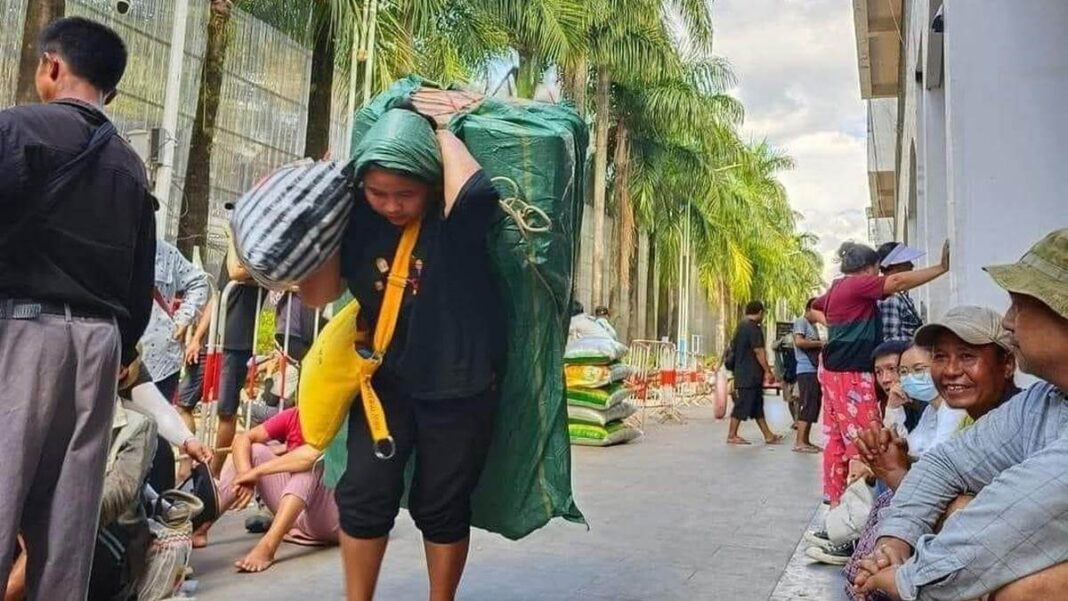


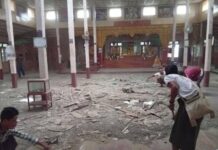

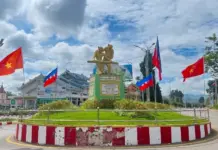




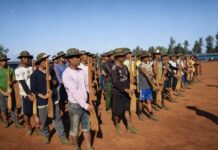

Leave a Comments